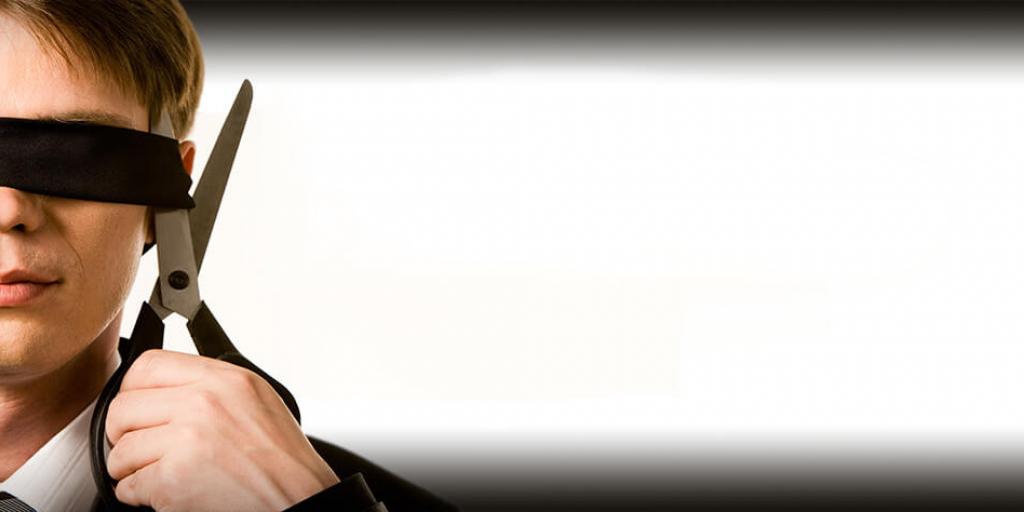
Could You Have Been Fooled?
Most people have heard the famous quote from President Abraham Lincoln: "You can fool all of the people some of the time, and some of the people all the time, but you cannot fool all the people all the time." There is truth in that statement. But it is also a scary thought that you or I can be fooled at least some of the time. I don't want to be fooled. Do you?
We have a blind spot in our eyes, known as the optic disk, where the optic nerve fiber exits the back of the eye. It is theorized that we don't "see" the blind spot because the brain somehow "fills in" the missing visual information.
We also have psychological blind spots. We don't know what we don't know. We may believe the experts know what they are talking about because they are supposed to be experts. We may only view something from one perspective. We may ignore facts and evidence because they go against our preconceived notion or what we want to believe. We may be too close to a problem to see the bigger picture. We may think "inside the box" and limit our thinking to the familiar. These are a few examples of our "mental blind spots."
How can we break through these blind spots to see what we are missing? One way is to not "blindly" accept what we think to be true, especially if there is evidence to the contrary. Whatever we think to be true should be able to stand up to testing. The Bible puts it this way: "Prove all things" (1 Thessalonians 5:21, KJV).
Another way to break through, or expose a blind spot, is to acknowledge a prejudice. We may want this or that thing to be true because we are comfortable with it and to not believe it would make us feel uncomfortable. If we force ourselves to examine a cherished belief in the cold light of reality and fact, we might have to change something about ourselves. We might have to behave differently. We might have to give up something. We might have to face the psychological pressure from friends and loved ones who won't want to accept this change.
What about our preconceived notions? In 1964, dimes and quarters and half dollars were 90% silver. In 1965 they were minted as clad copper "sandwiched" coins. I remembering saying to an older person I knew that I might start collecting the older silver coins since the new ones didn't contain silver. This person immediately stated what he knew as true, and that was "gold was $35 an ounce, and silver was $1.30 and that's the way it was always going to be." It wasn't long until the price of gold and silver changed significantly. The point is that what this individual thought he knew to be true really wasn't.
What do you "know" to be true that isn't? Have you ever been fooled about anything? As the old saying goes, has someone "pulled the wool over your eyes"? Most people today don't believe there is absolute truth. Why? Did they blindly accept what their professors taught them? Did it sound so intellectual and philosophical that truth must indeed be situational or relative?
If you are willing to admit you just might have been blinded, fooled or deceived, and that what you know just might not be so, then you have taken the first step to removing the blind spots and breaking through deception.
If you are willing to examine, with fresh eyes, beliefs you have assumed to be true, you are taking the second step. Watch the Tomorrow's World program. Go online at www.tomorrowsworld.org and examine the articles and booklets.
Prove all things. Seek the truth and you will find it.
Stay up to date with our Weekly Digest Email!
Tomorrow's World ComMentary Podcast
Subscribe to Tomorrow's World Commentary podcasts on iTunes and Google Play!



